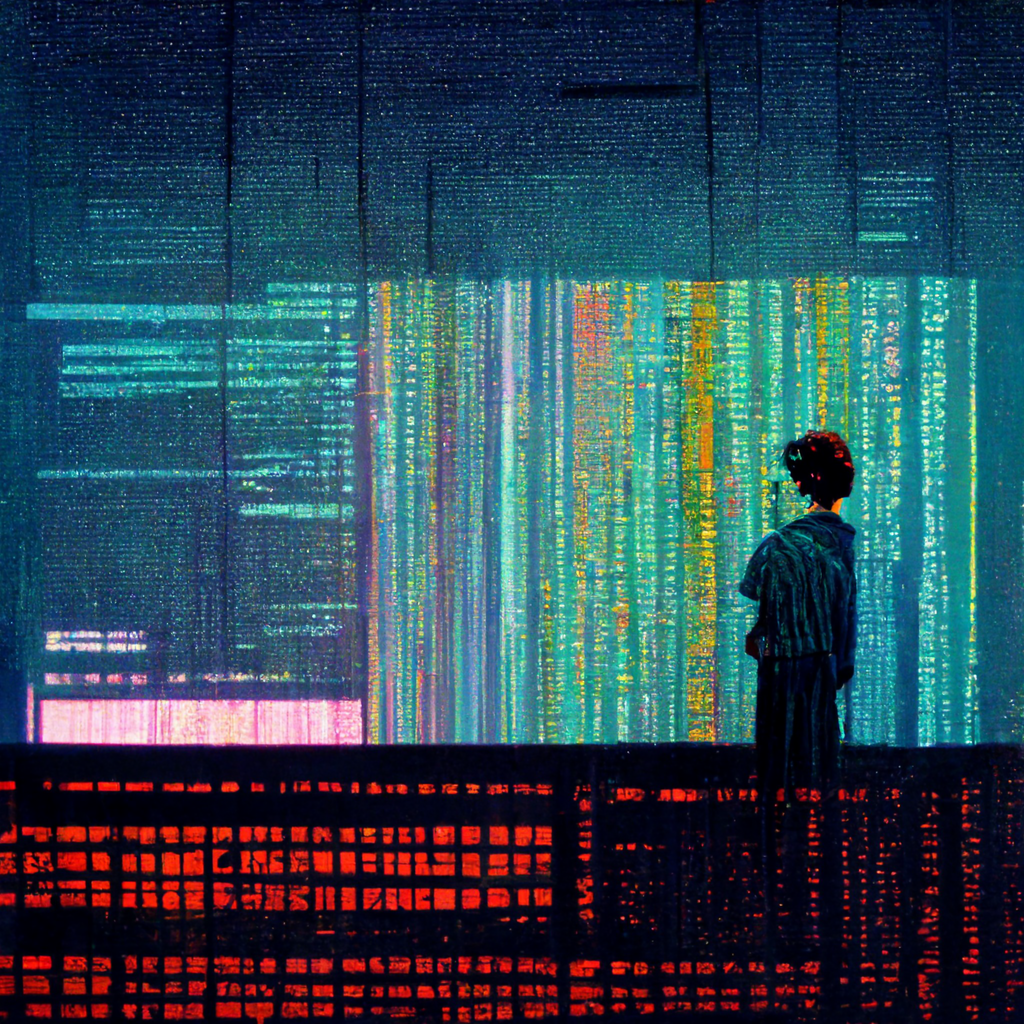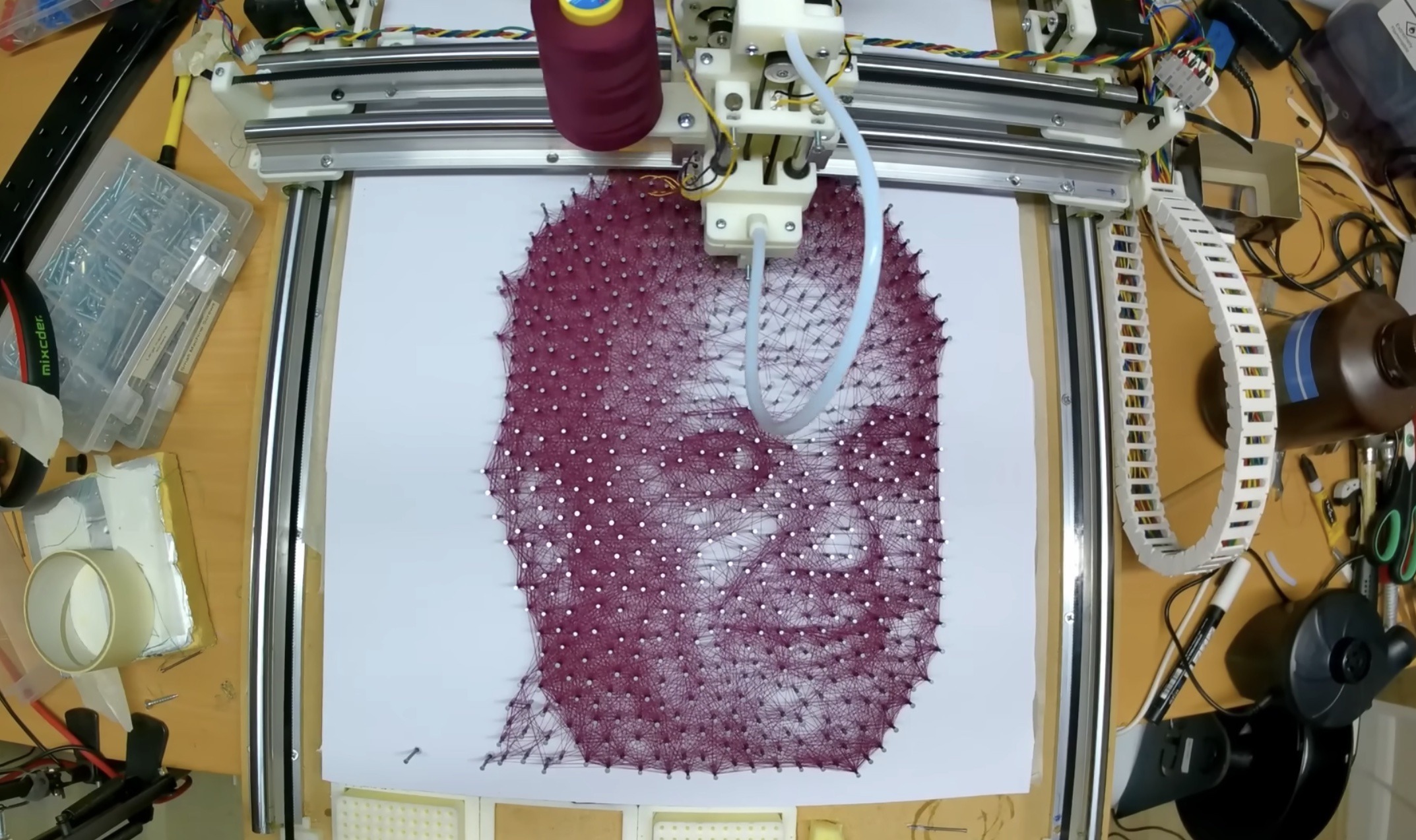criticize computers

Do you ever get really mad at your computer? Are you frustrated with how everything works these days? Do you get upset that you don't know who to turn to when programs or apps crash? Well, you're definitely not the only one.
Computers and applications are now our gods. They operate in an unseen ether and live there on a distant and mysterious Mount Olympus, better known as the Data Center. Their mercurial whims dictate our moods and our fortunes. We beg them, but we don't know if they are listening.
Of course, it wasn't always like this. Computers were small and simple. They were cute before! Now they're big and scary and mind-blowing. Now they are so complex that hardly anyone alive understands how they work in their entirety.
We have been warned about this. We were warned of the dangers of too much complexity, but we didn't care. Now, rather than figuring out how the thing works and what to do to fix it, we're basically crossing our fingers every time we boot up our computer or open an app. These reviews are not original to me, I'm just a messenger.
The history of the curse of modern computing is rich in history and thrilling, and below is a summary of some of the most biting criticisms from the brightest minds in the field.
1. Good hardware masks really bad software.
Our laptop processors are over 1,000 times faster than they were 30 years ago. So it's natural to ask, as Joe Armstrong does, why our programs don't run 1,000 times faster.
Jonathan Blow replies that software is in decline, even though it seems to be thriving. Software has abused hardware for decades, and in fact, software technology hasn't improved in years.
He states that "today we just don't expect software to work anymore. … 'The Five 9s' was a very common phrase in the 90s when people wanted to sell you software or a hardware system. It means "this system is up and available 99.999% of the time". We don't use it anymore. Partly because the number of 9s would go down, and we can't bring them back up. We even lost the rhetoric of quality that we had before."
2. All the bad code is piling up and we don't know how to get rid of it.
Joe Armstrong says that over the past 40 years, we've written billions of lines of code that will keep programmers employed for trillions of work hours over the next few thousand years to maintain and debug the code we wrote.
On the one hand, software engineers have to be thanked for this amazing jobs program they have created. On the other hand, since the software implementation was intended as a solution to reduce labor costs, it seems that the software implementation may have inadvertently increased them?< /p>
If, as the brilliant mathematician Edsger Dijkstra said, "computer science is about controlling complexity", then the body of work produced by programmers in the computer industry has failed completely.
Previously, when computers had a limited amount of memory, programmers had to be selective about which programs would live in memory. These constraints imposed strict discipline on the programmers, and over time a process of natural selection retained the good programs while weeding out the bad ones.
Today, memory is no longer an issue! We have more memory than we know what to do with. Rather than natural selection, we have a hoarding regime. All bad code can continue to plague and confuse future programmers.
3. The programs were pipeable. Now GUIs kill pipes.
There is already a programming philosophy with ideas of how to tame entropy and ensure that computers really control complexity, instead of increasing it. These ideas are summarized in Unix Philosophy, which I've added below for convenience:
Write programs that do one thing and do it well. Write programs to work together. Write programs to handle text streams, as this is a universal interface.If you think of programs as modular units of computation, you might consider combining or grouping these programs to do all sorts of new things. This way you never have to reprogram anything when you're just trying to create a new combination of functions, and if something goes wrong in your program, it's easy to debug since every component in your program doesn't does only one thing. Moreover, because the input and output of each pr...


Do you ever get really mad at your computer? Are you frustrated with how everything works these days? Do you get upset that you don't know who to turn to when programs or apps crash? Well, you're definitely not the only one.
Computers and applications are now our gods. They operate in an unseen ether and live there on a distant and mysterious Mount Olympus, better known as the Data Center. Their mercurial whims dictate our moods and our fortunes. We beg them, but we don't know if they are listening.
Of course, it wasn't always like this. Computers were small and simple. They were cute before! Now they're big and scary and mind-blowing. Now they are so complex that hardly anyone alive understands how they work in their entirety.
We have been warned about this. We were warned of the dangers of too much complexity, but we didn't care. Now, rather than figuring out how the thing works and what to do to fix it, we're basically crossing our fingers every time we boot up our computer or open an app. These reviews are not original to me, I'm just a messenger.
The history of the curse of modern computing is rich in history and thrilling, and below is a summary of some of the most biting criticisms from the brightest minds in the field.
1. Good hardware masks really bad software.
Our laptop processors are over 1,000 times faster than they were 30 years ago. So it's natural to ask, as Joe Armstrong does, why our programs don't run 1,000 times faster.
Jonathan Blow replies that software is in decline, even though it seems to be thriving. Software has abused hardware for decades, and in fact, software technology hasn't improved in years.
He states that "today we just don't expect software to work anymore. … 'The Five 9s' was a very common phrase in the 90s when people wanted to sell you software or a hardware system. It means "this system is up and available 99.999% of the time". We don't use it anymore. Partly because the number of 9s would go down, and we can't bring them back up. We even lost the rhetoric of quality that we had before."
2. All the bad code is piling up and we don't know how to get rid of it.
Joe Armstrong says that over the past 40 years, we've written billions of lines of code that will keep programmers employed for trillions of work hours over the next few thousand years to maintain and debug the code we wrote.
On the one hand, software engineers have to be thanked for this amazing jobs program they have created. On the other hand, since the software implementation was intended as a solution to reduce labor costs, it seems that the software implementation may have inadvertently increased them?< /p>
If, as the brilliant mathematician Edsger Dijkstra said, "computer science is about controlling complexity", then the body of work produced by programmers in the computer industry has failed completely.
Previously, when computers had a limited amount of memory, programmers had to be selective about which programs would live in memory. These constraints imposed strict discipline on the programmers, and over time a process of natural selection retained the good programs while weeding out the bad ones.
Today, memory is no longer an issue! We have more memory than we know what to do with. Rather than natural selection, we have a hoarding regime. All bad code can continue to plague and confuse future programmers.
3. The programs were pipeable. Now GUIs kill pipes.
There is already a programming philosophy with ideas of how to tame entropy and ensure that computers really control complexity, instead of increasing it. These ideas are summarized in Unix Philosophy, which I've added below for convenience:
Write programs that do one thing and do it well. Write programs to work together. Write programs to handle text streams, as this is a universal interface.If you think of programs as modular units of computation, you might consider combining or grouping these programs to do all sorts of new things. This way you never have to reprogram anything when you're just trying to create a new combination of functions, and if something goes wrong in your program, it's easy to debug since every component in your program doesn't does only one thing. Moreover, because the input and output of each pr...
What's Your Reaction?















![Three of ID's top PR executives quit ad firm Powerhouse [EXCLUSIVE]](https://variety.com/wp-content/uploads/2023/02/ID-PR-Logo.jpg?#)







